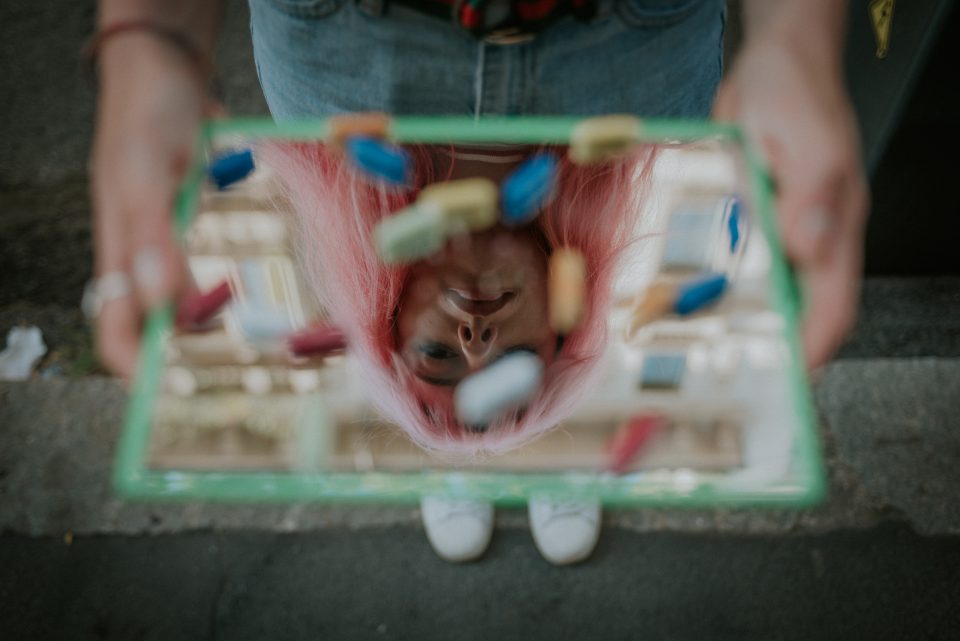
People in Bosnia and Herzegovina (BiH) today turn to addictions for many reasons, including the pandemic, poverty, social difficulties, limited perspective, post-war life, boredom, and apathy. Additions likewise take many forms, such as gambling, nicotine, drugs, alcohol, and increasingly, the Internet.
According to studies, the age at which people are consuming intoxicants has significantly lowered to as young as 13 or 12 years old. To counteract this trend, the whole of society must be actively involved in quality prevention. This entails a systemic approach, because addicts in smaller communities often do not have access to assistance or know who to turn to for help.
Nadija Bandić, Assistant to the Federal Minister of Education and Science, says there are different social pathologies in BiH society, but that adolescents are particularly at risk.
“A young man who starts using psychoactive substances at the most vulnerable age, such as adolescence, is often very aggressive and violent. Also, young people are very inactive and eat unhealthy food, which affects their lives in general,” explained Bandić.
The age at which people are starting to use intoxicants are lowering every year, according to Milena Latinčić, a social worker from the Center for Addiction Prevention and Outpatient Treatment in Mostar.
“Listening to other people who have done similar studies, they all came to the conclusion that 15 is the riskiest age. However, new studies show that this has changed to 13 and even 12 years old,” said Latinčić.
In addition to substance addictions, betting and gambling are also prevalent in Bosnian society. Research shows that almost half of the population has gambled, most often through the lottery, games of chance, or at gambling dens. Sanela Pekić, an expert on addiction prevention programs at the NARKO-NE Association, says that the fact that every third resident between the ages of 15 and 25 visits gambling shops is worrying.

According to data from the Tax Administration of the Federation of Bosnia and Herzegovina (FBiH), last year, nearly 1.6 billion Bosnian marks (800 million euros) were spent in gambling dens in the FBiH, compared with 1.3 billion Bosnian marks (650 million euros) the year before.
Low Awareness of the Problem
Research published seven years ago found that there were around 50,000 pathological gamblers in BiH. Pekić believes that there are several reasons why people decide to gamble. Among these are high levels of stress and inadequate coping mechanisms as well as poverty and unemployment, whereupon gambling may seem like a possible way out of this situation.
Marko Romić, a psychologist at the Association of Recovering Gambling Addicts, explained that in BiH, gambling has crept into every pore of life, from middle school to old age.
“There are significant efforts by our authorities to characterize gambling dens as a socially useful activity because they fill the budgets,” Romić pointed out.
As Pekić told Anadolu Agency in February of this year, few people are aware that they have a pathological gambling problem, and even when they do accept this, they rarely seek professional help because they think they can overcome the problem themselves.
“It’s important to emphasize that addiction to gambling is different from addiction to alcohol and other psychoactive substances, and in order to overcome this problem, it’s necessary to seek professional help. Treating pathological gambling is a process that takes a very long time. It’s certainly necessary to make more attempts, it necessitates changing one’s entire way of life, so it’s important that a person has the support of family and loved ones,” Pekić said in a statement for Anadolu Agency.
The NARKO-NE Association for Addiction Prevention launched a gambling and betting prevention program called “Who actually wins?” in March of this year. The program is intended for high school students, teachers, and parents, and is based on the science of addiction prevention.

Romić leads the Treated Gamblers Club – KLOK Mostar, which was founded in 2010 with the aim of helping treat addiction. In July, they had the 60th meeting of the first therapeutic online group. The treatment involves people from Bosnia and Herzegovina, Croatia, Serbia, Montenegro, Macedonia, and Bulgaria.
Drug addicts in Tuzla Canton are treated by doctors at the Psychiatry Clinic of the University Clinical Center. Mevludin Hasanović, head of the Department of Social Psychiatry, explains that social psychiatry involves caring for people who have diseases and other conditions related to the use and abuse of psychoactive substances. It also deals with new phenomenology related to behavioral psychology or addictive behavior, which includes gambling, betting, and recently, the internet. He says they have implemented a new program for treating addiction.
Prevention Programs
While there are centers for addiction treatment in other major cities in the FBiH as well, there is still work to be done on both treatment and prevention. In this, non-governmental organizations are leading the way. The NARKO-NE Association for Addiction Prevention is among them. They use a European curriculum for science-based prevention training for decision and opinion makers at the local, regional, and national levels. In partnership with the BiH Ministry of Security, NARKO-NE conducts trainings from the European prevention curriculum to improve the overall response to addiction in BiH and significantly reduce the prevalence of substance use.
Amir Hasanović, director of NARKO-NE, said that one of their long-term goals is training with as many decision-makers as possible, which he pointed out would increase the capacity and financing options for quality, sustainable addiction prevention programs.






